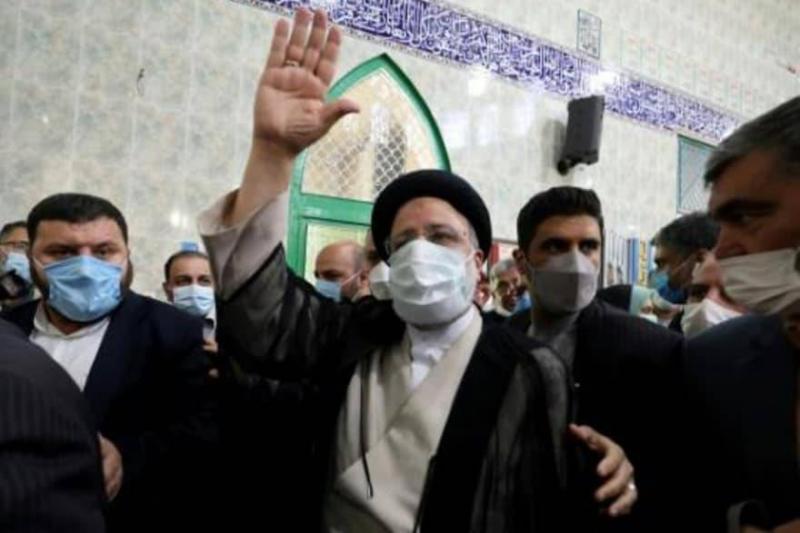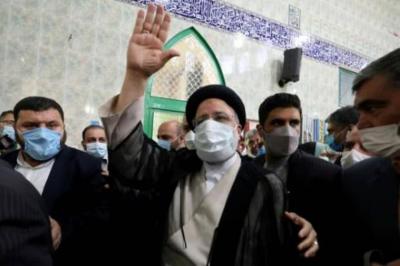Iran is anticipating the results of the presidential elections on Saturday, which are expected to favor hardline candidate Ebrahim Raisi. The voting process occurred amid an economic and social crisis and raised questions about voter turnout. Vote counting began early Saturday following the closure of polling stations after approximately 19 hours of voting. More than 59 million Iranians were invited to vote starting from 7 a.m. on Friday. Polling places closed at 2 p.m. Saturday (21:30 GMT Friday), after extending the voting period for an additional two hours, a possibility hinted at by authorities based on the need, especially given COVID-19 precautions. The results of the 13th presidential election in the Islamic Republic are expected to be announced by noon (07:30 GMT).
Four out of seven candidates endorsed by the Guardian Council participated in the race, while three withdrew before the election. The council faced criticism for excluding prominent figures, raising concerns about widespread abstention from voting. In the absence of a serious challenger, Judiciary Chief Raisi (60 years old) appears the most likely to win a four-year term, succeeding moderate Hassan Rouhani, who is ineligible to run again after holding the presidency for two consecutive terms since 2013. However, some Iranian presidential elections since 1997 have seen unexpected outcomes. If no candidate receives an absolute majority, a second round will take place on June 25 between the two candidates who receive the highest votes.
A victory for Raisi, if realized, is expected to strengthen the hardline faction's grip on key government institutions, following their significant win in last year's parliamentary elections.
The turnout rate will be closely monitored, noting that the lowest participation in a presidential election was 50.6% (in 1993). Prior to election day, public opinion polls and local media estimated turnout to be around 40%. No official figures were released by Saturday morning, although the Fars news agency, which is aligned with hardliners, predicted on Friday that participation would exceed 50%. The turnout in the last presidential election four years ago was 73%, while the February 2020 parliamentary elections saw a record abstention rate of 57%.
Supreme Leader Ayatollah Ali Khamenei kicked off election day by renewing calls for massive participation, stating, "What the Iranian people do today determines their fate and builds their future for several years." Khamenei has repeatedly urged high turnout, dismissing calls from foreign opponents on social media to abstain. The country has seen a lackluster campaign. In the streets of the capital on Friday, opinions differed regarding voting. A nurse, who only provided her last name (Sahabian), stated she would vote for Raisi as "the most competent candidate." A similar sentiment was expressed by Zahra Farahani, a homemaker, who affirmed her intention to vote for Raisi based on "his performance (at the head of the judiciary)."
The Guardian Council approved five candidates from the hardline camp and two reformists, before three withdrew on Wednesday. Raisi, a cleric close to Khamenei, competed against hardliners Mohsen Rezaei, a former IRGC commander, and Amir Hossein Ghazizadeh Hashemi, and reformist Abdolnaser Hemmati, who had been the central bank governor since 2018 until his candidacy.
Raisi garnered 38% of the votes in the 2017 elections and has held multiple positions over decades, particularly in the judiciary. He previously served as the custodian of the Razavi shrine in his hometown of Mashhad (northeast). Iranian media have also speculated on him as a potential successor to Khamenei.
The Guardian Council disqualified prominent candidates such as former Speaker of Parliament Ali Larijani, Vice President Eshaq Jahangiri, and Mahmoud Ahmadinejad, who served as president from 2005 to 2013. The exclusion of major names, particularly Larijani, who was expected to be Raisi's main competitor, created an impression that the elections had been predetermined. This was evident in the sentiments of some Tehran residents on Friday. Carpenter Hossein Ahmadi stated, "The current situation leaves us no choice but to remain silent and stay at home, hoping this will make our voices heard." Merchant Saeed Zarai remarked, "Whether I vote or not, someone has already been elected."
The Iranian president possesses executive powers and forms the government, but the final word on public policy rests with the Supreme Leader. The elections will conclude Rouhani's term, which began in 2013 and included a relative opening to the West, culminating in the signing of the 2015 agreement between Tehran and major powers regarding Iran's nuclear program, following years of tension. The agreement facilitated lifting sanctions on Tehran in exchange for curbing its nuclear activities. However, its effects have mostly ceased since the U.S. withdrawal in 2018 and the re-imposition of harsh sanctions on Iran. The elections coincide with talks in Vienna aimed at reviving the agreement. The candidates expressed support for prioritizing the lifting of sanctions and their commitment to the agreement, provided the United States fulfills its obligations. Several Iranian cities witnessed economic protests during the winter of 2017-2018 and in November 2019, which authorities suppressed vigorously. Improving living conditions will be a priority for the next president, a point emphasized by Khamenei.




